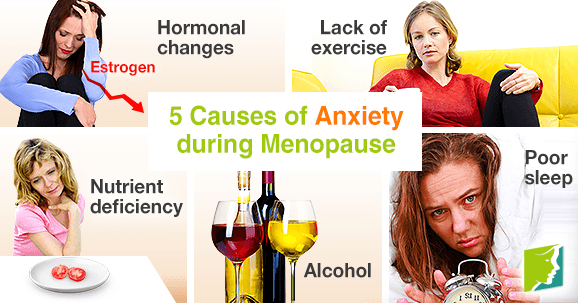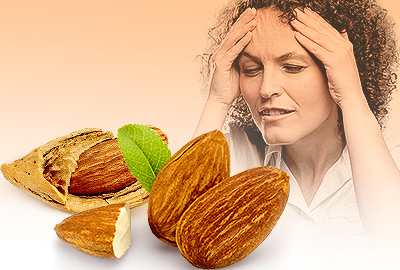Anxiety is surprisingly typical during menopause. With all the transitions taking place in your body, it can be difficult to manage everything you are dealing with. From mood swings to hot flashes and loss of libido, you are up against a lot. The good thing is that anxiety can be managed, even during menopause. When you adopt a routine that incorporates activity, relaxation, and healthful eating, you will be better able to overcome stress. Keep reading to understand the causes.
Hormonal Changes
During menopause, your estrogen levels plummet, which triggers the amygdala, the area of the brain in charge of emotional response. The result is stressful feelings and nervous behaviors, since it's the body's way of responding to a potentially dangerous situation. The increased amount of the stress hormone cortisol will can make this feeling of nervousness last even longer. A quick fix for this is estrogen-restoring teas like the phytoestrogen-rich black cohosh and dong quai. These compounds can raise levels of this sex hormone.
Lack of Exercise
When you don't move your body, tension builds up. Exercise not only reduces cortisol, but it also increases relaxation neurotransmitters. Try integrating 3 hours of exercise to your week and notice the improvement in your coping capabilities.
Cardio like swimming, biking, elliptical, dancing, and brisk walking can release serotonin, which can sustain feelings of happiness. It also raises your endorphin levels, which provides feelings of relaxation.
Yoga is specifically designed for balance and tranquility of the body and mind. The various balancing, strengthening, and stretching poses actually release gamma-aminobutyric acid (GABA), which induces deep tranquility.
Nutrient Deficiency
A diet lacking in certain nutrients can increase anxiety. Get a well-balanced diet of whole grains (like brown rice and quinoa), vegetables, fruits, nuts, and lean proteins (like tofu and salmon). The more colorful, the better. In order to feel at ease, you need all the essential vitamins and minerals.
Alcohol
Excessive alcohol intake is known to raise stress levels. Although it can relieve anxiety initially, it is typically short-lived and can make you emotional and nervous later. You will be more panicky and erratic with your anxiety, and you can even exhibit risky behavior.
Poor Sleep
If you do not get a good night's sleep, it won't give your mind a chance to put negative thoughts to rest and prepare you for a brand new day. The resulting fatigue will make it harder for you to think clearly and fulfil daily tasks and responsibilities, which can make you more stressed. If you are having trouble falling asleep, try a valerian supplement or tea, as it is known to induce relaxation and sleepiness.
You should check to see if any of these causes apply to you. During menopause, changes in hormone levels are the most common cause of anxiety, but you should also pay attention to your diet, physical activity level, and sleep health. Once you understand the causes and find the patterns in your own life, it makes it much easier to correct anxiety and feel serene.
Sources
- Better Health Channel. (2013). Menopause. Retrieved March 20, 2014, from http://www.betterhealth.vic.gov.au/bhcv2/bhcarticles.nsf/pages/Menopause
- University of Minnesota. (n.d.). Anxiety & Depression. Retrieved March 20, 2014, from http://www.takingcharge.csh.umn.edu/conditions/anxiety-depression




